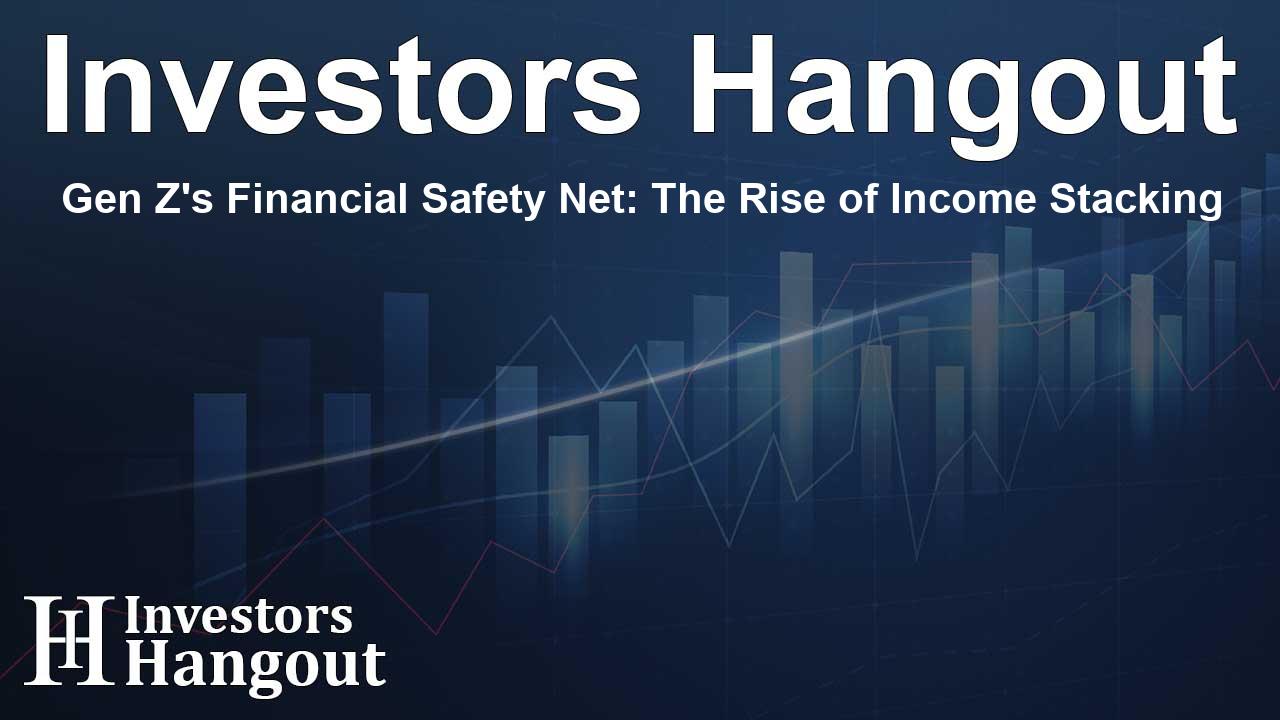Gen Z's Financial Safety Net: The Rise of Income Stacking

Understanding the Financial Landscape for Gen Z
In today's fast-paced economy, many young individuals are feeling the pinch of financial instability. Recent surveys indicate that a significant portion of Gen Z now sees the concept of "income stacking"—having multiple streams of income—as crucial for achieving financial security. This trend emerges in response to a shifting job market and increasing economic challenges.
The Shift in Job Expectations
A survey reveals that 67% of respondents from Gen Z argue that being able to earn from various sources is essential for their financial well-being. The anxiety stemming from a singular paycheck leads many to seek out side jobs, freelance work, or various income-generating activities. This paradigm shift in work attitudes reflects a larger trend as traditional employment becomes less appealing to this demographic.
The Fear of Financial Instability
The looming fear of financial inadequacy can weigh heavily on the minds of the younger workforce. Many are grappling with student debts, rising rents, and the pressures of social comparison, particularly on social media platforms. About 46% of Gen Z participants in the survey admitted that their foremost concern lies in not earning enough to lead a comfortable lifestyle.
Empowering Change in Employment
Experts and members of this generation, like Carissa Ferguson, exemplify how the ethos of "income stacking" can empower individuals. Having recently earned over $144,000 through multiple income sources, Carissa is a voice for her peers, showcasing how flexibility in earnings can turn into a form of freedom. By balancing various revenue streams, individuals can seize creative opportunities without the fear of financial repercussions.
The Role of Technology and AI
The workforce landscape is being further transformed by technological advances, particularly artificial intelligence. A notable segment of Gen Z is not only willing to adapt to these changes but sees AI as a trustworthy ally. By incorporating AI into their workflow, a majority of this group feels well-equipped to tackle various tasks, with many utilizing it for content creation and brainstorming sessions.
The Future of Work According to Gen Alpha
This year's survey also included insights from Gen Alpha, hinting at their future influences on the work landscape. Their career aspirations differ greatly from those of their predecessors; many are inclined towards freelancing and roles in digital content creation rather than traditional jobs. Approximately 31% of Gen Alpha respondents expressed interest in pursuing freelance opportunities, revealing a generation that is already shaping its destiny.
Unique Perspectives on Career Ambitions
Interestingly, Gen Z's outlook on work challenges several stereotypes. Only 18% believe that staying with one job is the best path forward, while many view the assumptions about their ambition and work ethic as misguided. This group is keen on cultivating a personal brand and leveraging social media to connect with new career paths, showcasing their adaptability.
Insights for Employers and Businesses
Employers looking to attract and retain young talent can take a page from this research. Flexibility in working hours is paramount; 42% of Gen Z values this when seeking employment. Meanwhile, positive work culture and competitive compensation also play crucial roles in job satisfaction for this cohort. Companies that fail to recognize these trends risk losing out on a dynamic and resourceful workforce.
The Importance of Adapting to Change
As the job market continues to evolve, both businesses and employees must prioritize resilience through diversified income sources. The rise of freelancing and side hustles reflects a shift not only in individual attitudes but in collective work dynamics. By creating environments that foster innovation and flexibility, companies can pave the way for a new generation of entrepreneurs and skilled professionals.
Frequently Asked Questions
What is income stacking?
Income stacking refers to the practice of having multiple streams of income, which provides financial security and reduces reliance on a single paycheck.
Why do many Gen Z individuals fear financial instability?
Gen Z faces unique financial pressures, such as student loans and living costs, compounded by the visibility of peers' lifestyles on social media.
How is AI impacting the job market for younger workers?
AI is increasingly integrated into workflows, with many Gen Zers using it to assist in various tasks, enhancing efficiency and creativity.
What career paths does Gen Alpha prefer?
Gen Alpha shows a preference for careers in fields like visual arts, digital marketing, and freelance opportunities rather than traditional sectors.
What should companies do to attract Gen Z workers?
Companies should focus on offering flexible working conditions, a positive culture, and competitive compensation to meet Gen Z’s expectations.
About The Author
Contact Owen Jenkins privately here. Or send an email with ATTN: Owen Jenkins as the subject to contact@investorshangout.com.
About Investors Hangout
Investors Hangout is a leading online stock forum for financial discussion and learning, offering a wide range of free tools and resources. It draws in traders of all levels, who exchange market knowledge, investigate trading tactics, and keep an eye on industry developments in real time. Featuring financial articles, stock message boards, quotes, charts, company profiles, and live news updates. Through cooperative learning and a wealth of informational resources, it helps users from novices creating their first portfolios to experts honing their techniques. Join Investors Hangout today: https://investorshangout.com/
The content of this article is based on factual, publicly available information and does not represent legal, financial, or investment advice. Investors Hangout does not offer financial advice, and the author is not a licensed financial advisor. Consult a qualified advisor before making any financial or investment decisions based on this article. This article should not be considered advice to purchase, sell, or hold any securities or other investments. If any of the material provided here is inaccurate, please contact us for corrections.
